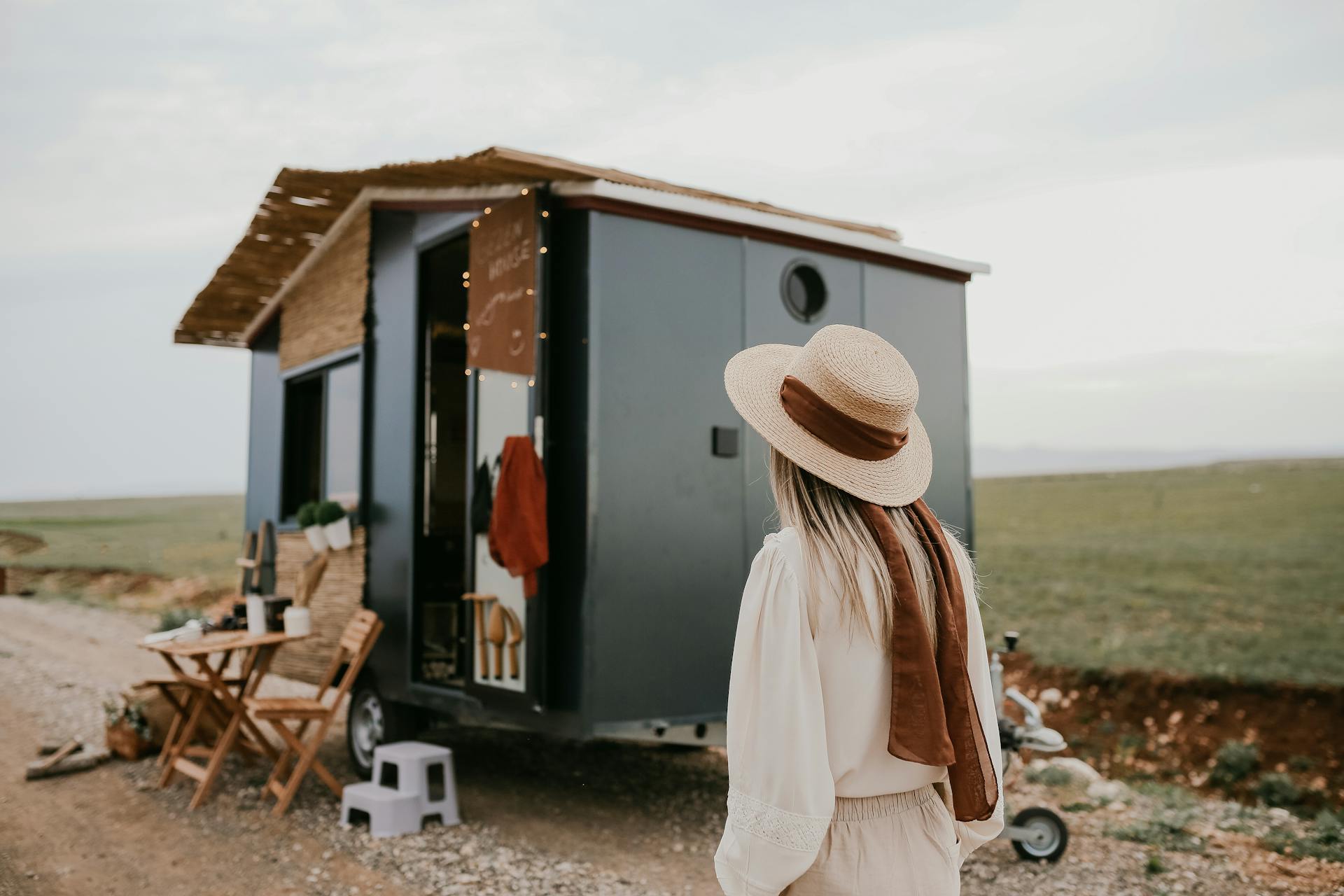PROPERTYSPARK ARTICLE
Top Considerations for First-Time Buyers of Tiny Homes on Wheels

Selecting the Right Towing Vehicle
It’s important to think about what you’ll need to tow your new home safely and legally when buying a tiny house on wheels. The kind of tow truck needed will depend on how much weight the tiny house has after all of its items and accessories are installed. A strong SUV or pickup truck with ample towing capacity is required for most compact dwellings. Excellent cars made expressly for heavy carrying are the Chevrolet Silverado and Ford F-150. In addition to having the required power, these cars also come equipped with cutting-edge towing features like integrated brake controllers and trailer sway control, which improve traffic safety. Furthermore, make sure your car has the right towing package to meet the needs of towing a tiny house. This package should include stronger brakes, a transmission, and maybe a reinforced frame.
Conducting a License Plate Lookup
Whether you’re buying a towing vehicle or need to register your tiny home on wheels, performing a license plate lookup is essential. This step, whether you are in Michigan or another state, helps confirm the vehicle’s ownership details, registration history, and any potential liens against it. You can buy with confidence knowing that the car or mobile home you are contemplating is free of unpaid debts and legal issues by using the Michigan license plate lookup.
How to Conduct a License Plate Lookup
Conducting a license plate lookup is straightforward. You can use internet services that require the license plate number, or VIN, to get a detailed report on the history of the vehicle, including past ownership, accident history, and more. These audits are essential to avoiding monetary and legal issues later on.
Budgeting for Your Tiny Home
One of the most important phases in the tiny home purchasing process is creating a budget. In addition to the initial cost of the house and the tow car, take into account recurring costs like upkeep, insurance, and parking. The cost of tiny homes can vary greatly, with more expensive ones being more opulent. Creating a realistic budget that accounts for each of these costs can assist you in properly managing your money.
Financing Options
Exploring financing options is vital. Some banks offer specific loans for tiny homes, but these can be challenging to secure without proper credit and employment history. Alternatively, many tiny home builders provide in-house financing plans that might be worth considering.
Zoning Laws and Parking
Before purchasing your tiny home, research local zoning laws where you plan to park. Many areas have specific regulations regarding tiny homes, and some may not allow them on certain types of property. Additionally, consider the logistics of parking your home, whether in a specialized tiny house community, a private lot, or using RV parks that accommodate long-term stays.
Understanding Local Regulations
Local regulations can significantly affect your tiny home lifestyle. Some regions require that tiny homes on wheels be registered as RVs, while others might have more stringent standards. Check with local planning and zoning departments to ensure compliance and avoid potential fines.
Customization and Storage Solutions
Customizing your tiny home can make it more comfortable and functional. Making the most of vertical space, multipurpose furniture, and built-in storage options can all help make living in a smaller space more doable. Additionally, adding distinctive patterns and eco-friendly materials to your tiny house can improve both its practicality and visual appeal.
Sustainability Options
For people who are interested in sustainability, tiny homes provide a variety of eco-friendly options. Solar panels, composting toilets, and rainwater collection systems can all increase your business’s environmental friendliness and efficiency. These actions have the potential to reduce costs and improve the environment over time.
Conclusion
When buying a mobile tiny house, there are a number of crucial factors to take into account. Every step involves considerable consideration and planning, from choosing the ideal tow truck to comprehending zoning regulations and designing your area. First-time buyers can make well-informed judgments that support their aims for mobile living by paying close attention to these pointers and doing extensive research.
Learn how to Become a Top Agent with the Guaranteed 5 Min/Week System
No social media experience needed
Free webinar seat (limited quantities)
Learn the guaranteed 5 min/week system
Become a social media superstar
Constantly get new leads
Beat the competition
Get a special webinar deal
This Agent Tripled His Commissions Just With Social Media
Learn how this real estate agent tripled his commissions just with social media and how you too can become a social media superstar.
Why You Can’t Just “Boost” Your Real Estate Listing
That big blue button has tempted you before right? You want to Facebook Boost your Real Estate listing. Find out why you shouldn’t!
How Much Should Realtors Spend On Social Media
A question we get often from Realtors is “how much should I spend on social media?” Find out exactly how much to spend and how to spend it without getting ripped off!



